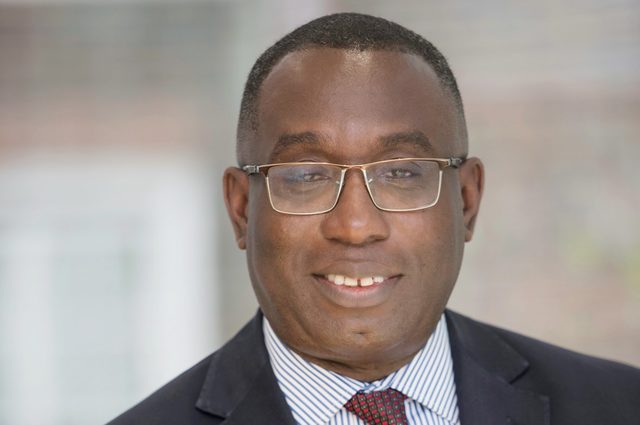The key challenge, said CIMA stalwart Dr Noel Tagoe, is not the technology, but the social side.
On 10 and 11 September, finance professionals attended the Chartered Global Management Accountant (CGMA) Conference at the Cape Town International Convention Centre.
Dr Noel Tagoe founder and CEO, Noel Tagoe & Company and former executive vice president, Research & Curricula at CIMA, delivered an opening keynote in which he said that finance professionals need to learn, unlearn and relearn. “Things are dynamic and changing fast and we need to learn from each other. This is a time for sharing, getting working, gaining knowledge and using knowledge.”
He also spoke about how rapid and unpredictable changes in the operating environments of organisations driven by technology and other factors are creating new industries, putting traditional revenue and profitability models under pressure and ensuring that the finance industry focuses on what matters to organisations to create value.
He added that CIMA is 100 years old this year, and thanked the audience for being a part of CIMA’s 100-year history.
He also mentioned that the most difficult part of the digital transformation in any organisation is not the technology, “It is the social side.”
 On the second day of the conference, a panel, “Digital Finance Leadership: The rate and scope of transformation CFOs must embed within organisations” provided insight into how digital transformation can be socialised in an organisation. On the panel were Pieter de Jager, the CFO of Tanzania-based Tanga Cement, Avashnee Ramdial, CFO at Stanlib, and Roy Clark, the managing director of ClarkHouse Human Capital.
On the second day of the conference, a panel, “Digital Finance Leadership: The rate and scope of transformation CFOs must embed within organisations” provided insight into how digital transformation can be socialised in an organisation. On the panel were Pieter de Jager, the CFO of Tanzania-based Tanga Cement, Avashnee Ramdial, CFO at Stanlib, and Roy Clark, the managing director of ClarkHouse Human Capital.
“We concluded on the need to drive automation of repetitive tasks and focus more on skills development towards innovation and strategic management. These areas of expertise are outside of the traditional skills set of accountants and CFOs, and so we need to empower people to innovate and to entrust them with business decision making,” says Pieter.
He adds that the speed of execution in the digital age requires that you automate mundane tasks and focus your human capital on innovation and doing things better and quicker.
At his organisation, he says, a great deal of work has been done in training staff and putting them at the forefront of the business, to make decisions and come up with solutions.
“The problem we faced four years ago was that the traditional accounting department team weren’t decision makers, they were report generators. We dedicated senior accounting staff to the different departments in the business, making them business partners. This cross-functional coordination paid dividends in terms the speed of transformation and execution. There is now no single business issue that remains unresolved for more than three days on average, whereas it could take up to a month previously, and would only be solved unless an executive stepped in.”
He says that this programme of succession planning and continual skills evaluation and improvement is at the forefront of all Tanga’s staff development, and is a key focus area for the exco team. “Each head of department has specific KPIs put in place in terms of skills transformation both through formal training programmes and mentoring. We put measurement metrics in place for key staff members to be evaluated externally from time to time to assess their progress and to identify developmental areas which require more focus. Exco took 100 percent personal ownership and accountability for this drive.”











